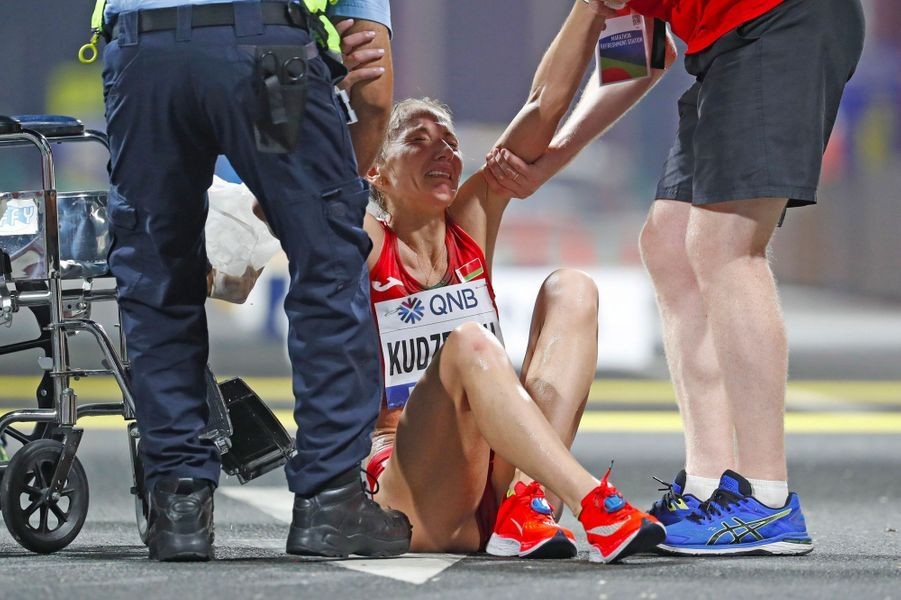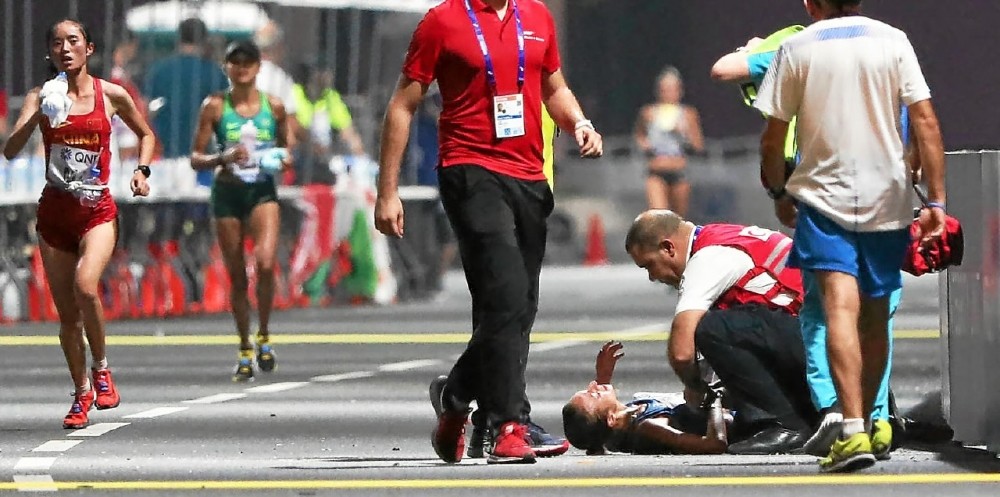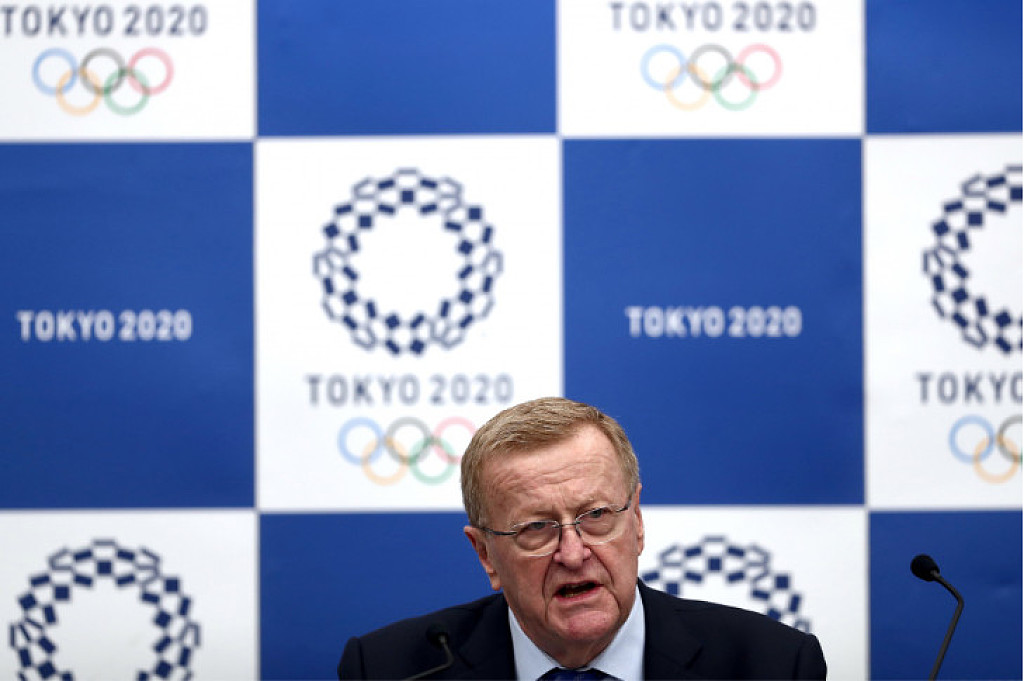Running News Daily
Running News Daily is edited by Bob Anderson. Send your news items to bob@mybestruns.com Advertising opportunities available. Train the Kenyan Way at KATA Kenya and Portugal owned and operated by Bob Anderson. Be sure to catch our movie A Long Run the movie KATA Running Camps and KATA Potato Farms - 31 now open in Kenya! https://kata.ke/
Index to Daily Posts · Sign Up For Updates · Run The World Feed
Sapporo switch could come back to haunt IOC
The clash between the International Olympic Committee (IOC) and the Tokyo Metropolitan Government (TMG) over the marathon and race walk move to Sapporo played out last week as if it were scripted.
IOC Coordination Commission chair John Coates came cast as peacemaker. The Australian showered the TMG and Tokyo 2020 with praise for their preparations, while lauding the achievements of the Japanese team and organisers at the Rugby World Cup.
Tokyo Governor Yuriko Koike performed impressively in her role, defending locals against foreign influence and insisting she would not pay for the mess created by the IOC. A victory on both counts.
The decision to move the events to Sapporo was never going to change. Even if the TMG had the option to keep the races, it would have been a risk to overrule the IOC’s warnings about heat on the off chance a major incident occurred involving an athlete.

The decision is a sad one, with Tokyo missing out on the opportunity to showcase the city’s landmarks to a worldwide audience and offer the residents of the capital city the chance to watch one of Japan’s favoured events for free.
Maybe, the IOC decision is the right one. Even if we set aside previous Olympic marathon and race walks being held under similar conditions, and the fact the IOC did not rush to protect the health of athletes when a year before Rio 2016 sailors and rowers were falling ill amid the pollution of Guanabara Bay.
If we take the view of Canadian race walker Evan Dunfee - one I share - that the IOC took the decision to protect their brand and avoid negative press, it could still be a fair reason to move the events.

Would it be a good thing for the sport of athletics to see athletes wheeled away from a course requiring medical attention, as they were at the World Championships in Doha, even if they are ultimately okay? Sure, athletes will push beyond their limits anyway, but it seems reasonable to try to mitigate risks.
It was suggested here that the looped course in Doha made it easier for athletes to receive medical support. Where the city circuit touring the sights of Tokyo would see resources more spread out.
The five Ps of "proper preparation preventing poor performance" apply here, with athletes having the responsibility to tailor their training to the conditions. But, equally, organisers could not respond by saying an athlete should have prepared better if something went awry.
A key question is whether the IOC should be the ones making this call, rather than an International Federation or medical experts.
There is little doubt, though, that the IOC has handled this badly.
Managing to annoy athletes, politicians and residents of a city at the same time is impressive - even for the IOC.
This is problematic for the IOC in both the short and long-term.
The most pressing issue is that there is no course in Sapporo yet for either the marathon and race walks, while financing remains unclear.
Athletes and National Olympic Committees will be required to adapt plans, which is likely to see additional support staff required to be brought to Sapporo, with the associated costs involved.
Currently, there is no concrete plan as to who picks up the cost of the move, other than knowing that the Tokyo Government will not be doing so. I wonder whether Sapporo’s hopes of the hosting the Winter Olympics in 2030 could enjoy a boost should they bail the IOC out of a hole here.
The IOC has agreed to examine and verify the money already spent by the TMG on heat countermeasures, such as special paving. Although the IOC has promised it will not walk away from obligations, there appeared to be a suggestion the Paralympic and proposed "Olympic Celebration Marathon" could be used to say Tokyo has received a legacy for their investment.
The TMG’s anger at the lack of consultation may just be a short-term issue. A sympathetic view is that the IOC realised the only way to force the switch to Sapporo was the take extreme action and give Tokyo no choice but to conform, given they knew organisers would fight tooth and nail otherwise.
The IOC may have decided it is better to take the heat now than at Games time - excuse the pun. The decision could yet leave them marinating in their own words for some time to come, given what it exposes about the IOC’s relationship with host cities.
If we rewind little over a year, the IOC dispatched Olympic Games executive director Christophe Dubi to Calgary to convince locals to support their 2026 Winter bid. The visit came at a time when the Winter Olympic bid race appeared to be threatening to collapse completely, with anti-Olympics campaigners driving the message that the IOC cannot be trusted.
I wrote at the time that Dubi had delivered a strong display for the IOC, where he fronted up on previous mistakes and insisted changes had been made. The message was clear: the IOC will act as a partner with host cities and work the Games concept around them.
"What has changed in the IOC from 2014 is our approach to the way we do the bidding, organise the Games and manage legacies," he said. "It is all about partnership, it is all about flexibility and finding the right solution for the hosts.
"The Games cannot impose to a city anymore; the Games adapt to a city.
"It means over the last two years, we had to look at our Host City Contract, every single article to make sure that flexibility is reflected in every single article. Every requirement has to live to local creativity to play.
"We do not have the final solution, we have local solutions."
It is hard to reconcile these words with this latest decision taken by the IOC.
Is taking a unilateral decision without consulting the host city really acting in partnership with them? Is taking free events from a host against their will not the IOC imposing its will on city? Is moving an event 800 kilometres from the host city really a local solution?
When asked about whether the decision was the IOC dictating to a host city, Coates suggested the Sapporo switch did not clash with their rhetoric.
"We have a Host City Contract and the Olympic Charter leaves a clear authority for the IOC to take decisions like this where it is necessary," he said. "I do not think that is at odds with the Agenda 2020 reforms in terms of flexibility.
"If you suddenly become aware of something, you have got to have the right to respond to that, as has happened here where we have had to act very quickly because of the experience of Doha."
While Coates and the IOC might believe that, the past couple of weeks will serve as evidence for critics that the leopard has not changed its spots.
The IOC claim they are a joint party with a host city, but their actions suggest that these are our Games, not yours.
After all, an Organising Committee repeatedly hailed as being the best prepared in Olympic history has been rewarded by being left scrambling for the past two weeks, unable to provide answers to a scenario they did not create.
Anti-Olympics campaigners will point to one of Japan’s most powerful politicians being overruled about a decision in her own city. Koike’s own quotes will be used as warnings for future hosts.
"We are receiving angry opinions about what being a host city really implies," she said earlier this week. "We consider it an unprecedented turn of events for the IOC to take such a proposal with no consultation or discussion with the host city beforehand."
The IOC may be right to move the marathon and race walk events.
However, I wonder whether their handling of the switch will have a wider impact than the decision itself.
by Michael Pavitt
Login to leave a comment
Tokyo 2020 Olympic Games
Fifty-six years after having organized the Olympic Games, the Japanese capital will be hosting a Summer edition for the second time, originally scheduled from July 24 to August 9, 2020, the games were postponed due to coronavirus outbreak, the postponed Tokyo Olympics will be held from July 23 to August 8 in 2021, according to the International Olympic Committee decision. ...
more...




